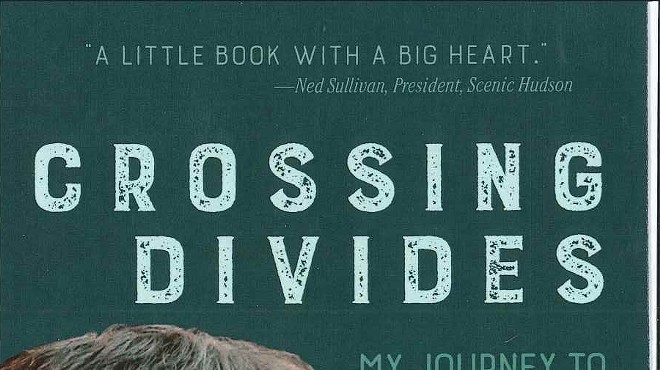Ah, Alan Greenspan….
As Justin Martin writes in his meticulous biography Greenspan: The Man Behind Money (2001, Basic Books), “By the dawn of the new millennium, it was nearly impossible to find anyone in America who wasn’t ga-ga over Greenspan. Democrats and Republicans, Wall Street and Main Street, dogs and cats—all were high on the Fed chairman.”
Along came 2008. Now it’s “The Reckoning: Taking a Hard New Look at the Greenspan Legacy" (New York Times, October 8, 2008) and Alan’s in the “Bubble Hall of Shame.”
Alan Greenspan was an Objectivist. What, you may ask, is an Objectivist? A follower of Ayn Rand, most famous for Atlas Shrugged, a novel in which the capitalist entrepreneurs go on strike against the collectivist shlubs in government (who dare to tax and regulate) and the working class (who dare to form unions), but they’re really just leeches, and when the great men abandon the shlubs, the world collapses.
The true capitalists go off to the wilderness, form their own little utopia, build railroads that run on time and airplanes that never crash, and have fiery, gorgeous, young, college-educated heiresses desperate to bed them. It was an expression of her philosophy, which she took very seriously, and called Objectivism. She established a group, and was surrounded by devotees and acolytes. They believed that man was rational and that real morality came from strict devotion to one’s own self-interest. They wore gold dollar-sign tiepins or brooches, depending on their gender, hated collectivism, and worshipped capitalism.
When I say “capitalism,” I mean a full, pure, uncontrolled, unregulated laissez-faire capitalism—with a separation of state and economics, in the same way and for the same reasons as the separation of state and church.
Ayn Rand’s real name was Alissa Rosenbaum. She was a Russian Jew.
When I discovered that, I suddenly had a whole new understanding. There’s this thing about Jews. Pardon me, as I plunge into ethnic stereotyping here. But as a Jew, via Latvia and Belarus, I claim a certain latitude.
Jews like to think. Nudge one, and a philosopher begins to spout. They have a theory—about the world, God, food, love, human relations, politics. It’s happy, it’s sad. It is, especially, utopian.
They’re good at it. They make up great theories. Partly because theories are just theories, and partly because Jews are normally the underdog, so there’s almost always a humanistic heart beating beneath the ideologies they invent.
But then, from time to time, a gentile gets hold of one of those theories, and, boy oh boy, there’s trouble.
For example, you have Jesus. Nice ideas, very friendly, be good to the poor, “he who is without sin, cast the first stone,” like that. The goys take it over, and next thing you know, you have the Spanish Inquisition. The Arabs pick it up, turn it into Islam, and what’s the first thing they do? They make the Jews and Christians second-class citizens. Which is nothing to what they do to polytheists. Karl Marx, Fredrich Engels, they’re saying “from each according to their abilities, to each according to their needs.” Saintly sentiments. They write a couple of books, a movement starts, you turn around and you’re looking at Joseph Stalin and Mao Tse Tung and a few million peasants are uprooted and slaughtered. Albert Einstein figures out that mass can be turn into energy. The gentiles find out, and it’s bye-bye Hiroshima, sayanora Nagasaki.
Anyway, that’s where Alan Greenspan came from. He had all these ideas from a Russian Jewish lady who changed her name to the one on her typewriter. He studied economics, became a consultant, did very well, and was on the boards of numerous giant corporations. Then he was appointed as Chairman of the Federal Reserve. During his two years with Reagan and the four with Bush the Elder, he couldn’t do too much harm.
Along came Clinton, who was really smart about economics, had a reasonably populist mentality and a Democratic base. Greenspan, who has a knack for accommodating himself to whomever is in power, worked well with the new president. The economy under Clinton was exceptional. Conservatives and Republicans hated giving him credit for anything, so they declared that it was the sun that shone from Greenspan’s rear that made the green dollars grow.
Then along came George W. Bush. He was one of those gentiles. The kind who would take a Jewish idea, whether it was Christianity or the Ayn Rand/Milton Freidman faith in free markets, jump on it, and ride it as if it were actually true in the real world.
With nobody to restrain him, Greenspan put his full faith in the markets. He kept interest rates low. That pumped the money into sub-prime mortgages and exotic credit instruments. He resisted regulations. When he was warned that real estate was blowing a big, big bubble, he refused to act.
So there he was, being quizzed by Congressman Henry Waxman. First, Greenspan said, in a prepared statement, “Those of us who have looked to the self-interest of lending institutions to protect shareholder’s equity (myself especially) are in a state of shocked disbelief.”
Well, yes. One of the fundamentals of conservative, free-market, laissez-faire, Objectivist economics is that business people will act sanely and sensibly, thereby protecting people who trust in them. That’s a theological belief. Now, watching the bubble burst, Greenspan was doing a remarkable thing, and he does deserve some credit for it. He was acknowledging reality!
Then he said, “I made a mistake in presuming they were best capable of protecting their own shareholders”—which means they need to be regulated. By someone else. By government. By the shlubs and leeches.
“In other words, you found that your view of the world, your ideology, was not right, it was not working,” Waxman said, implying that this notion that individual greed would, as if “guided by an invisible hand,” lead to the greatest social good.
“Absolutely, precisely,” Greenspan replied. The acolyte of Alissa Rosenbaum, the apostle of Adam Smith, the enabler of George W. Bush, had acknowledged that their god––the free market––had failed.

















